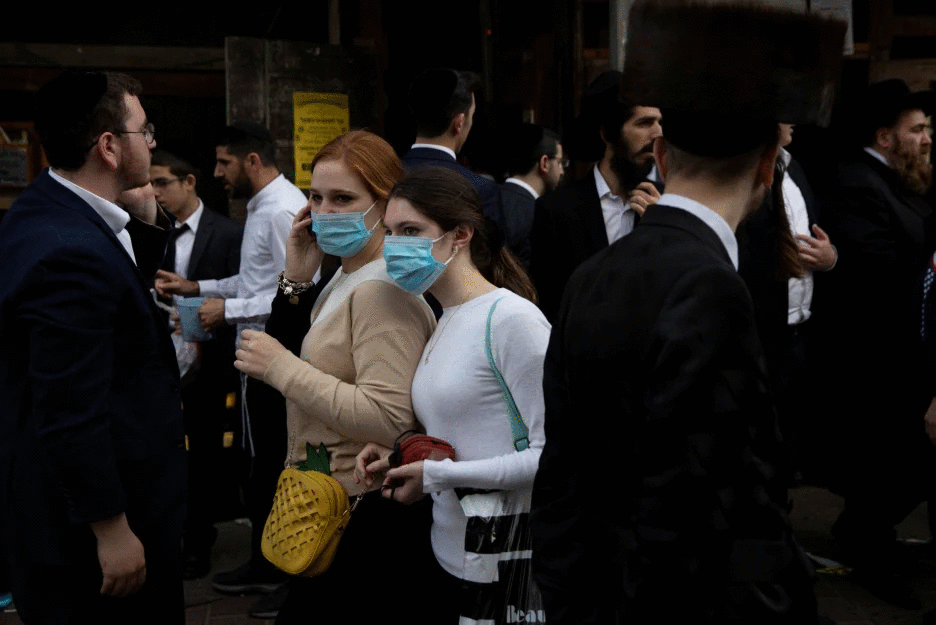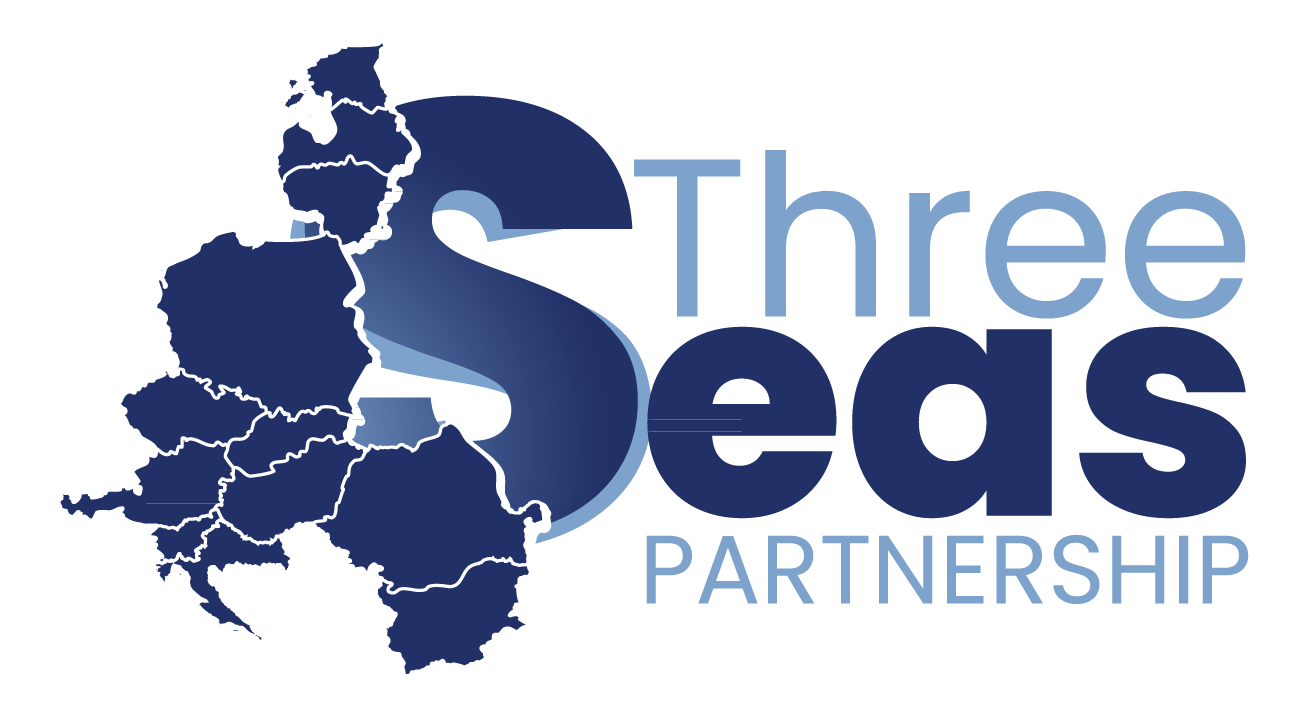INTERVIEWS
Date: 3 May 2020
Israel during the pandemic: Less contentious dialogue with the Palestinians than with the Opposition
Although Israel has relatively recently already seen three Knesset elections, the future of the emergency unity government remains questionable. The controversial Netanyahu-Gantz agreement maintains the current Prime Minister in the office, however, the Supreme Court decision might still potentially loosen Benjamin Netanyahu’s grip on power, taking into account his three corruption indictments.

Tadeusz Woleński and Erez Raviv discusses why these days the Israeli government has better dialogue with the Palestinians than with the opposition in Israel and why it is the only democratic country that has authorised its Security Agency to monitor those potentially infected by the novel coronavirus.
Małgorzata Cichal, The Warsaw Institute Review: In the third elections, the centre-left bloc, with the support of the Joint List (the Arab party), gained 62 seats. However, Benny Gantz has rejected the opportunity to form a minority government, agreeing instead to form a unity government with Benjamin Netanyahu- who would maintain the position of Prime Minister for another 18 months. Thus, the leader of the Blue and White went back on a promise that had been central to the party’s campaign. Do exceptional times indeed require exceptional decisions?
Erez Raviv: There is no actual centre-left block. The 62 contain considerable gaps and a lack of trust with regard to one other that is too large to ignore. Otherwise, the 62 should have created a majority government. Gantz did go back on a central promise, and it is difficult to interpret his referrals to the Coronavirus outbreak as authentically much else than a pretext. With this, it would seem that the new government negotiations had less to do with health nor economic matters related to the COVID-19 outbreak, so if it is a pretext, its foundations become questionable. Gantz did mention that this decision prevented the fourth election, and there is some truth to this, given that the new government could actually be established – however, this is not yet 100% assured. The alternative – a fourth election – would be remarkably difficult to accomplish during the long outbreak of the virus, not to mention its controversial attributes which would accompany it.
In Israel, a military career can be a partial but good indicator of a future political career. Nevertheless, Benny Gantz’s path tends to challenge this assumption, suggesting that the skills of leadership in the armed forces do not necessarily translate into skills of leadership of the state or statesmanship.
Erez Raviv: First, a future political career of some sort doesn’t always mean a successful one. Relatively speaking, Gantz attempted to make the furthest leap and almost made it – straight from the Chief of Staff to the Prime Minister, where no other has even tried, he almost made it. Yet, it was a bit too high of a jump, as it turns out. His relative success could be explained by the power of growing anti-Netanyahu sentiment in some parts of the Israeli public, building up on from a long rule of 11 years and serious corruption allegations. Nobody knows much about Gantz’s political stances, which are rather vague, but many do not seem to care. His political skills are a source to a lot of criticisms in the media these days, but a lot of those who do criticise have an invested interest in the political outcome. In all, a bit too soon to know just yet, in my opinion. While the fourth election may have been prevented, I don’t see the country saved with or without Gantz. Most of his support is based on the negative motivations, not on the positive support.

Would the Supreme Court decision still potentially loosen Benjamin Netanyahu’s de facto grip on power? Considering the three corruption indictments that you mentioned, what would the fourth election mean for Israel?
Erez Raviv: First, it means that Netanyahu remains Prime Minister for most of 2020. The fourth election is a logistical nightmare during the Coronavirus outbreak. It also means more support for the right, since the right-wing bloc has better support within Israel’s younger voting generation. A small shift to the left is possible, in the context of the lack of financial support during the current economic stress, but it is unlikely. I must say there is almost no left in Israel’s political spectrum, almost no one suggests a leftist alternative to the current policies. The political struggle intensifies mainly between the different gradients of relatively centre to right-wing parties.
On 20 April, we saw thousands of Israelis involved in the “Black Flag” movement gathered in a socially distant protest against the strict policy measures as well as the Gantz-Netanyahu agreement. Does their demonstration have any impact on Israeli politicians?
Erez Raviv: Political protests these days have less influence than usual since the main concern of the public is their health. The agenda itself would also seem to be quite personal – against the alleged corruption of the current Prime Minister. While that can be considered a political stance of sorts, in a wider view it is “apolitical” in the circumstances – meaning they would not likely protest against a different Prime Minister with the same policy. Because of that, this kind of protest is “easy prey” for skilled manipulative political players.

Worth mentioning, as a result of the unification of several Arab parties, the latter election saw the Joint List as the third political force in the country. Although their support is growing not only among the Arab electorate but also among some Jewish voters, most political groups openly admit that they will not agree to form a government with Arabs.
Tadeusz Woleński: It seems that Israeli society is not yet ready for a minority government, as the idea of a possible “support for the Gantz’s government” by the Arab party was abandoned quite quickly.
Erez Raviv: Arabs and Druze members of Zionist Jewish parties were already lower ranking ministers in Israel’s previous governments. The Jewish support of the Joint List (JL) is relatively minimal. Only one party, Chadash, out of the four of JL is a left-wing entity and traditionally has the support of some Jews. If I’m not mistaken, I believe the establishment of the JL gathered less Jewish votes than the Jewish vote to Chadash before. The remaining three parties are Muslim or nationalist Arab parties with almost no appeal to Jewish voters. The rejection of the Joint List by Jewish parties is explained both formally – because of their political stances, and latently because ‘they are Arabs’. Surprisingly, The Jewish people who are in favour of an alliance with the JL ignore the list’s political stances, and use symbolic reasoning – such as ‘Arabs too are entitled to representation’ and ‘The rejection of the List is racist’. There is also a utilitarian narrative – ‘only together with the Arabs, the anti-Netanyahu Jewish bloc could replace him’. The Joint List’s members have their own doubts about the cooperation, and they directly and publicly relate to policy issues, and not just symbolical considerations.
Let us talk about the main concern of many Israelis – the pandemic. The first case of COVID19 infection in Israel was already recorded at the end of February. It appears that the authorities have reacted quickly, including the introduction of a mandatory 14-day quarantine for all arriving to the country. Today we notice that despite the high number of confirmed cases (14 500), the mortality rate remains relatively low (approximately 1%).
Tadeusz Woleński: The low mortality rate results probably from two reasons: a relatively young population and a relatively well-functioning healthcare system. As far as the citizens’ perspective is concerned, the society, as always, is divided, but in general, during the last month (according to the media’s assessment) the majority of them have complied with the restrictions.
Erez Raviv: Israel is indeed quite young, compared to Germany, Belgium or Italy. However, there are other factors to consider. The harsh closure has a strong effect not only on the economy but also on the health system in the long run. Meaning that with the main focus on the virus, other illnesses become undertreated. Many health procedures are postponed or cancelled, therefore the low mortality rate from coronavirus is a valid achievement. It is only a part of the bigger picture.

We received quite ambiguous news concerning the use of technology to prevent the spread of COVID19. Benjamin Netanyahu has authorized the Israel Security Agency, Shin Bet, to collect mobile data to track down people the infected person got close to. However, we do not know whether the data will be deleted, and surveillance rights abolished after the pandemic.
Tadeusz Woleński: The technology and tracking system are in my opinion quite simple and well thought out – when the infection case is confirmed, Shin Bet receives the patient’s geolocation data from the last 3 weeks. An uninfected person can voluntarily download a mobile application to verify whether he or she could have been at the same place and time with the infected person within the last 2-3 weeks. If so, they must be quarantined. It is difficult to predict what will happen to the data after the pandemic, but the government promises to delete them.
Erez Raviv: It is a serious concern, not only in Israel. Israel is the only democratic country that does this by Shin Bet or parallel organization abroad as if sick people were similar to a terror threat. In my opinion, this tracking is not very efficient, and its extension was stopped by the Knesset, at least for now. This process was established not by law, but by an emergency governmental decree, which will be invalid in 5 days. Nevertheless, the government is working to find the legal way to extend it further.
Despite only 10% share of the general population of Israel, ultra-Orthodox Jews (Haredis) constitute over 50% of patients hospitalized for COVID19. Can such dramatic circumstances undermine the authority of rabbis forbidding closure of schools and synagogues? Apart from the religious context that separates Haredi from the secular state order, there is also a language barrier.
Tadeusz Woleński: The high infection rate among Haredis is mainly caused by their close daily contact, which at the same time stands for their modus vivendi. The neighbourhoods, as well as the apartments in ultra-Orthodox districts, are relatively small with a high density of residents and family members. Their daily visits to the synagogue undoubtedly did contribute to the rapid spread of the virus. However, in my opinion, the situation will not undermine the authority of the rabbis.
Erez Raviv: Almost all Haredis in Israel are fluent in Hebrew, it is rather a cultural barrier. By now, almost all rabbis support the health decrees of the state so the problem is partly solved. Schools and synagogues were closed. Some even sealed shut. More Haredis are exposed to the Internet because of this crisis and that may have some effect. Usually, Haredis use filtered Internet, and filtered phone – ‘dumbphones’ with no SMS feature. But the number of exceptions to this norm is growing, and that might change or even undermine the rabbis’ authority in some way, but only in the long run. The Haredi committee that blocks phone numbers for “kosher” phones is corrupt and squeezes money for the Chasidut of the Health minister, so there is a growing Haredi outrage and protest against its rule.

As the unemployment rate in Israel soared over 26 percent, nearly half (48.1 percent) constitute young citizens up to 34 years old. What kind of emergency social support programme has been proposed to them?
Erez Raviv: Not a lot. Social security unemployment insurance is a bit extended, but it is not built for such a crisis. First, the support is minimal by law – so the people would be motivated to find a job – which is irrelevant these days. Second, the current payments empty the reserves of social security and the government does not add funds to it so far. Israel’s financial support until present is medium-low by potential quantity, and very low by actual funds delivered. The new support mechanism for freelancers and small businesses is also inadequate. Unlike other countries, there are no salary subsidies in Israel by the government. That gives the unemployed fewer chances to return to their previous job in the future. To sum it up, instead of the treasury to protect the living people, the living people protect the treasury. ‘Jam tomorrow, never jam today’ is a good figurative symbol for this.
According to the Netanyahu-Gantz coalition agreement concerning President Trump’s declaration on the ‘Peace to Prosperity’ Plan, the annexation of 30% of Area C of the West Bank – including all the settlements therein – could begin to move forward as early as 1 July. If this holds, what geopolitical consequences in the region shall we expect?
Erez Raviv: At this point it is impossible to predict. It seems that everybody is in a weaker position in one way or another and rather preoccupied these days – Arabs, Iranians, Americans, and Russians. Doing this within the coronavirus crisis time frame, it would probably create less geopolitical consequences in the short term, but such matters should not be managed by short term considerations. The geopolitical consequences, as well as the internal Israeli consequences, are mainly only really manifested in the longer term. That said, there is no guarantee that decision-makers in Israel would not do it anyway.

Israel already wields decision-making power over the West Bank (WB) and Gaza (GS) territories. Although Palestinian Authority security forces managed to take steps to contain the spread of the pandemic continues, would the Israeli government cooperate with Al-Fatah and Hamas?
Tadeusz Woleński: The West Bank and the Gaza Strip remain dependent on Israel both economically and medically. The cooperation between them and Israel always been at times worse or better, but always better with the West Bank and worse with the Gaza Strip. Especially now, in the time of the pandemic, it is worth noting that it was the Israelis who trained the doctors from the GS and shared with them the medical equipment. Perhaps, as the situation develops, the cooperation might intensify. In case of a rapid spread of the epidemic within the WB and the GS, it can be expected that Israel will be blamed by the Palestinians. At the moment, WB/Fatah is keeping off such comments, even requesting its citizens to not publish fake-news of this type in their social media.
Erez Raviv: There is a big issue with construction workers in Israel – many of them are Palestinians. Israel does not protect them with protective gear and safety and health instructors, though it is possible to do so. They need the money, but they are also exposed to greater chances of getting infected with the virus while working in Israel. Nevertheless, the cooperation is always stronger than publicly published. There are also fewer terror events during the outbreak against Israel. The Israeli government has a better dialogue with the Palestinians these days than with the opposition in Israel, but the publicity of such cooperation has been diminished intentionally.
Interview by Małgorzata Cichal – The Warsaw Institute Review
Tadeusz Wolenski – is Polish and Israeli living in Israel for 11 years. A Graduate from International Relation at the Jagiellonian University in Krakow, he also studied Middle East Studies at Tel Aviv University. He works at the Polish Institute in Tel Aviv where he manages Polish-Israeli cultural cooperation in the fields of art and culture as well as Polish-Jewish dialogue.
Erez Raviv – is an Israeli economics correspondent for the news outlet “Davar”- free to read online daily news in Hebrew, with smaller editions in English and Arabic, published by “The Histadrut”, Israel’s largest workers union. He worked for 9 years at the Ghetto Fighters House museum with a deep interest in Jewish history. He has a degree in informal education and history teaching.
_________________________________
All texts published by the Warsaw Institute Foundation may be disseminated on the condition that their origin is credited. Images may not be used without permission.
















